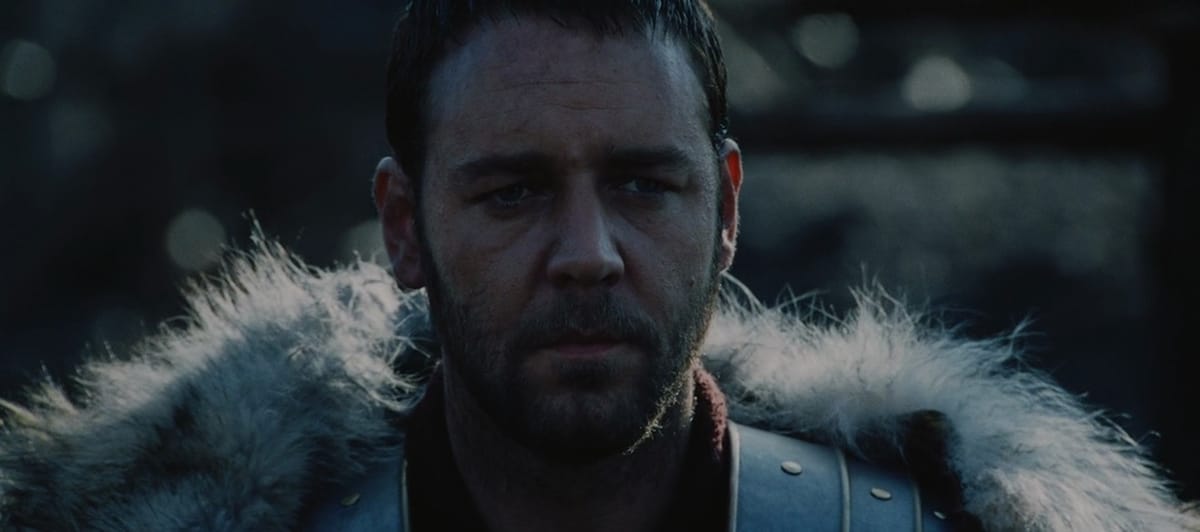Bread, circuses, and a man who just wants to go home.

GLADIATOR is Ridley Scott’s grand return to the ancient epic — but what makes it endure isn’t the scale, the spectacle, or even the coliseum itself. It’s the film’s emotional architecture: a revenge tragedy wrapped in myth, executed with modern ferocity and classical restraint. Scott resurrects Rome not as a dusty museum piece, but as a living empire fueled by blood, ego, and the public’s hunger for spectacle. And at its center stands a single man who wants nothing more than to go home.
Russell Crowe’s Maximus is a hero carved out of exhaustion and grief, not glory. Crowe brings a weary sincerity to the role, a man whose strength isn’t swagger but conviction. His rage is quiet, his love understated, his purpose sharpened by loss. Maximus becomes mythic not because he seeks legend, but because he refuses corruption. Crowe plays him with the gravity of someone who knows he’s already dead — every step is simply the path toward justice. His whispered mantra, “I will have my vengeance, in this life or the next,” lands like a prayer sharpened into a blade.
Opposite him, Joaquin Phoenix’s Commodus is one of the great modern screen villains: insecure, needy, dangerously intelligent, and emotionally starved. Phoenix doesn’t play him as a tyrant so much as a child trapped inside absolute power — a man desperate to be loved and more desperate to be feared. His jealousy toward Maximus is Shakespearean, his cruelty intimate. Every twitch, stutter, and glance reveals a man at war with the shadow of greatness he will never reach. His Rome is built on spectacle because he cannot inspire loyalty.
Scott’s direction turns the arena into a character. The gladiatorial matches are choreographed like ballets of brutality — elegant, operatic, and terrifying. The dust, the sweat, the metallic roar of blades clashing, Hans Zimmer’s now-iconic score pulsing beneath every moment… it’s spectacle grounded in consequence. Scott understands that the arena wasn’t entertainment; it was politics disguised as theater, a state-sanctioned distraction. The film embraces that duality with chilling clarity.
Hans Zimmer’s score deserves its own paragraph. His music doesn’t accompany the film — it elevates it. The mournful strings, the pounding percussion, and Lisa Gerrard’s ethereal vocals turn Maximus’s journey into something spiritual. Zimmer’s compositions capture the film’s central paradox: the brutality of Rome and the gentleness Maximus carries within him.
But what elevates GLADIATOR beyond the typical revenge epic is its sense of morality. The film isn’t about a warrior reclaiming honor; it’s about a man rejecting a corrupt world that failed to protect what mattered. Maximus fights not for empire, but for memory — of his family, his home, and the Rome Marcus Aurelius imagined but never achieved. The final moments, where the film trades blood for tenderness, transform the story from spectacle to elegy.
GLADIATOR endures because it marries intimacy with scale, grief with grandeur, myth with mortality. It’s an epic carved from loss, a tragedy disguised as victory, and one of the rare blockbusters that uses spectacle to reveal something deeply human.
It still asks the same question Commodus never could answer:
What is Rome without virtue?




